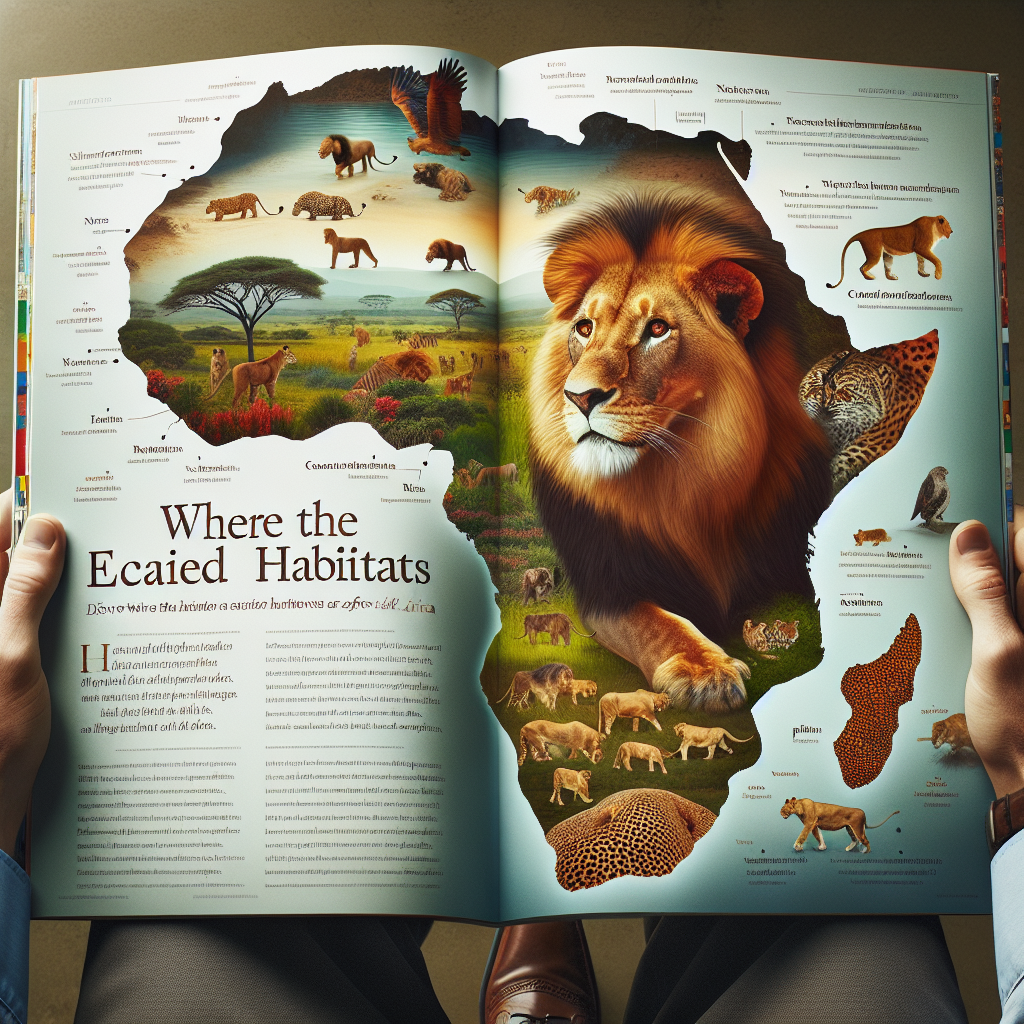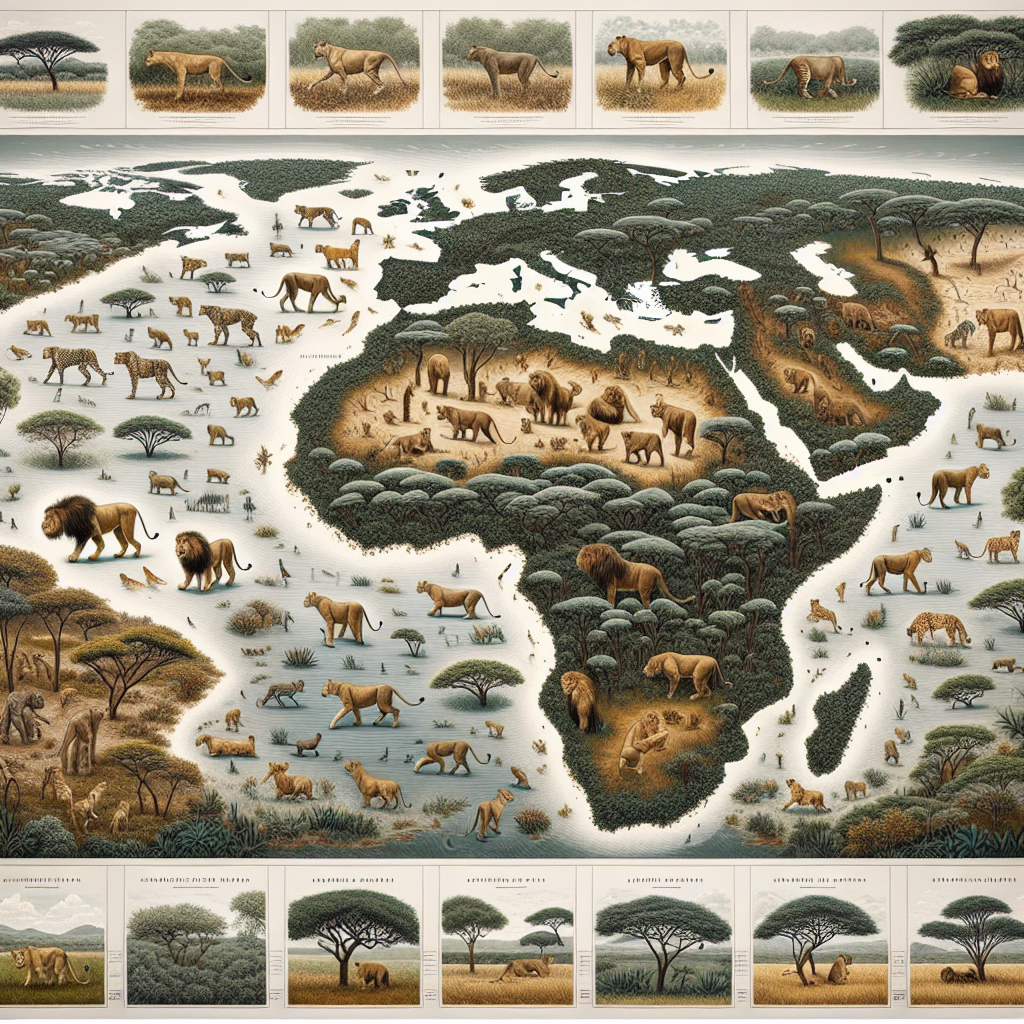When you think of Africa, the majestic image of lions roaming freely across the vast savannah likely comes to mind. But have you ever wondered where exactly in Africa these magnificent creatures call home? Lions have a wide range within the continent, but they predominantly inhabit the grasslands and plains of East and Southern Africa, including countries like Kenya, Tanzania, and South Africa. Join us as we embark on a journey to uncover the captivating territories where lions reign supreme in Africa. Lions, often referred to as the “King of the Jungle,” are majestic creatures that roam across various parts of Africa. Their habitats are spread throughout the continent, with different subspecies found in different regions. In this article, we will explore the range of lions in Africa and delve into the factors affecting their populations. We will also discuss the various conservation efforts being undertaken to protect these magnificent creatures and the implications for their future survival.

Habitat of Lions
Lions are predominantly found in sub-Saharan Africa, which encompasses a vast area of the continent. Their distribution is influenced by factors such as prey availability, suitable habitat, and human activities. The range of lions in Africa can be divided into several regions, each with its own unique lion populations and subspecies.
Subspecies of African Lions
African lions can be further classified into different subspecies, each adapted to their specific environments. Three main subspecies of African lions are commonly recognized:
Atlas Lions (Panthera leo leo)
Atlas lions, also known as Barbary lions, were once found in the Atlas Mountains of North Africa, including countries like Morocco, Algeria, and Tunisia. However, they were declared extinct in the wild in the early 20th century, primarily due to hunting and habitat loss.
East African Lions (Panthera leo nubica)
East African lions are found in countries like Kenya, Tanzania, and Uganda. These lions are known for their distinctive darker manes and have adapted to the savannah and grassland habitats of the region.
South African Lions (Panthera leo krugeri)
South African lions, also known as Transvaal lions, can be found in countries such as South Africa, Namibia, and Botswana. They are well-adapted to the drier and open landscapes of southern Africa.
Lion Range in Eastern Africa
Eastern Africa is home to some of the most iconic lion populations on the continent. Countries like Kenya, Tanzania, and Uganda boast diverse landscapes and national parks that offer suitable habitats for these majestic creatures.
Kenya
Kenya is renowned for its abundant wildlife and is often referred to as the “safari capital” of Africa. The country’s national parks and reserves, such as the Maasai Mara and Amboseli National Park, provide an ideal habitat for lions. They can be found roaming the vast savannahs and grasslands, preying on herbivores like wildebeest and zebras.
Tanzania
Tanzania is another East African country teeming with a rich diversity of wildlife, including lions. The Serengeti National Park, famous for the annual wildebeest migration, is a prime lion habitat. The Ngorongoro Conservation Area and Ruaha National Park also provide critical lion ranges, offering visitors the opportunity to witness these magnificent creatures in their natural environment.
Uganda
Uganda, often overshadowed by its neighboring countries in terms of wildlife tourism, is emerging as a prime destination for lion sightings. The Kidepo Valley National Park and Queen Elizabeth National Park are known for their lion populations, giving visitors a chance to observe these majestic animals up close.
Lion Range in Southern Africa
Southern Africa offers a different landscape and habitat for lions, characterized by drier regions and expansive open plains. Countries such as South Africa, Namibia, and Botswana are home to thriving lion populations.
South Africa
South Africa’s diverse ecosystems, including the famous Kruger National Park and Kgalagadi Transfrontier Park, provide ample habitats for lions. The lions here have adapted to a mix of habitats, from savannahs and grasslands to woodlands and bushveld.
Namibia
Namibia’s unique desert landscapes, such as the Namib-Naukluft National Park and Etosha National Park, are home to desert-adapted lions. These lions have developed specialized skills to survive in the harsh desert environment, relying on smaller prey and navigating the arid terrain.
Botswana
Botswana’s Okavango Delta and Chobe National Park are renowned for their rich wildlife populations, including lions. The vast wetlands of the Okavango Delta provide a unique habitat for lions, offering an exceptional opportunity for safari enthusiasts to witness these magnificent creatures in a different setting.
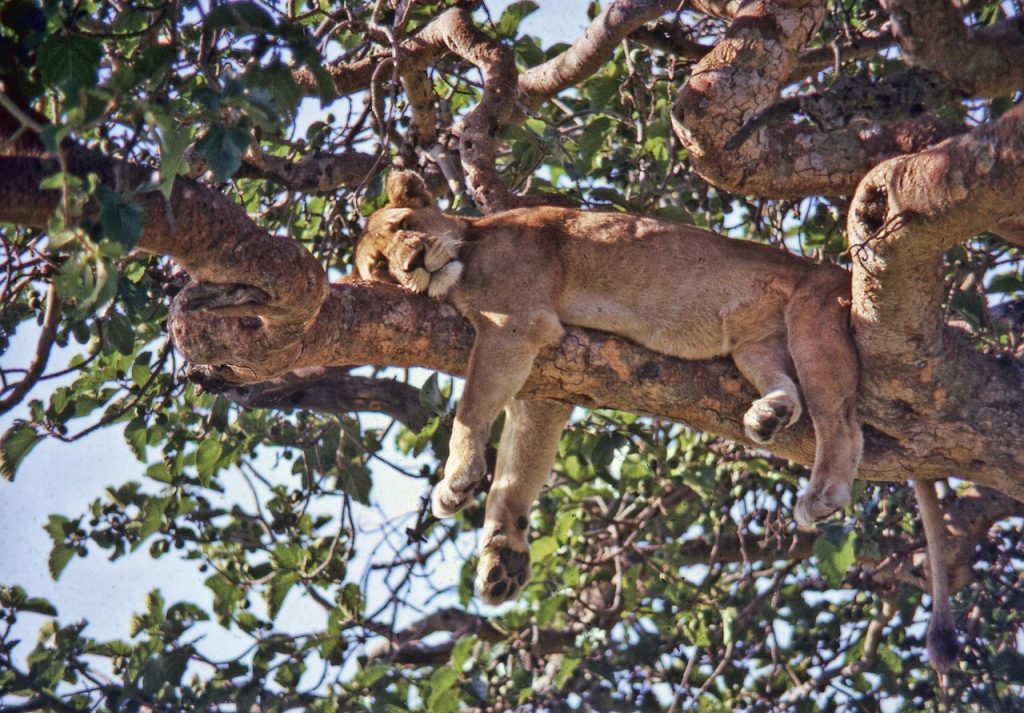
Lion Range in Central Africa
Central Africa holds its own significant lion populations, although the region is often overlooked in terms of wildlife tourism. Countries like Sudan, Chad, and the Central African Republic provide critical habitats for these majestic cats.
Sudan
Sudan, with its diverse ecosystems ranging from savannahs to marshlands, is home to a sizable lion population. Protected areas such as Dinder National Park and Radom National Park offer refuge to lions and other wildlife species.
Chad
Chad is another country in Central Africa that plays host to lion populations. The Zakouma National Park is renowned for its conservation efforts and serves as a safe haven for lions, elephants, and other endangered species.
Central African Republic
The Central African Republic boasts expansive wilderness areas, such as the Dzanga-Sangha National Park, where lions can be found. These protected areas play a crucial role in preserving the biodiversity of the region, including lions.
Lion Range in Western Africa
Western Africa is home to several unique lion populations, although their numbers have significantly declined over the past few decades. Countries like Niger, Benin, and Ghana are striving to protect their remaining lion habitats.
Niger
Niger’s wildlife reserves, such as the W National Park, are key lion habitats in the region. However, the lion populations here face numerous threats, including habitat loss and conflicts with humans.
Benin
Benin, located in the Gulf of Guinea, is home to the Pendjari National Park, where lions can be found. Efforts are underway to protect and conserve the park’s biodiversity, including the lion population.
Ghana
Ghana’s Mole National Park and Bui National Park are among the few remaining habitats for lions in the country. Conservation efforts, such as anti-poaching initiatives and community-based conservation projects, are crucial for the survival of lions in Ghana.
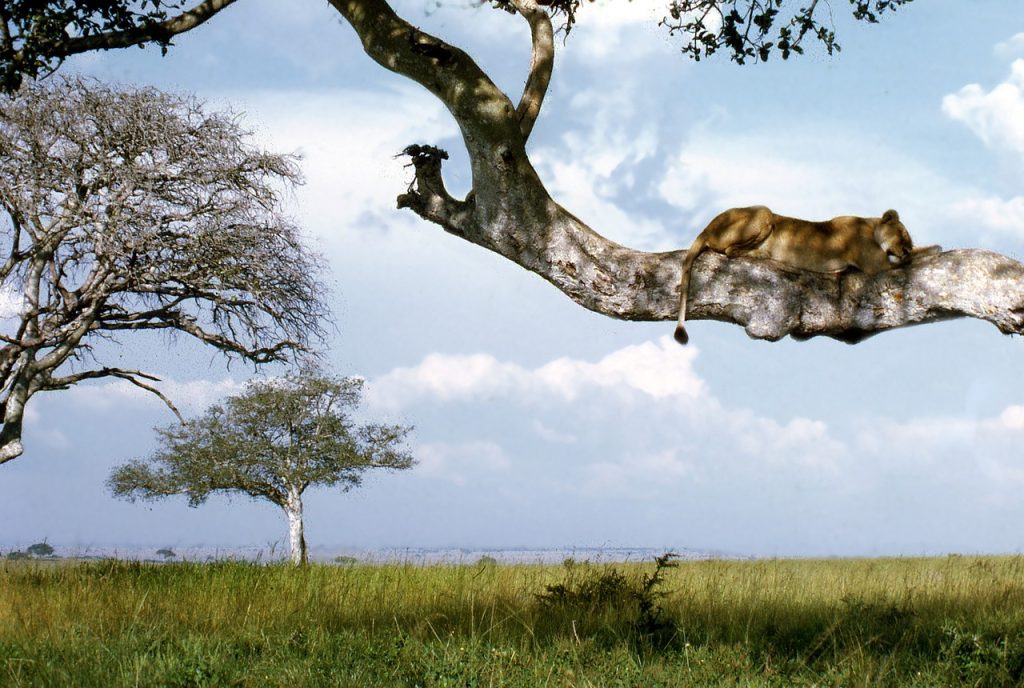
Lion Range in Northern Africa
Northern Africa, often overlooked in terms of lion habitats, is historically associated with the now-extinct Barbary lions. However, small populations of lions are still found in a few countries in the region.
Morocco
Morocco, known for its rich history and culture, was once home to the Barbary lions. However, these lions were hunted to extinction, and Morocco’s current lion populations are primarily found in captivity.
Algeria
Algeria also had populations of Barbary lions in the past, but they are now considered extinct in the country. Efforts are being made to reintroduce these lions to the region, with hopes of restoring their presence in the wild.
Egypt
Egypt is home to a small population of captive lions, primarily found in zoos and wildlife facilities. These lions, descendants of Egyptian royal lions, serve as a reminder of the country’s historical association with the species.
Factors Affecting Lion Populations
Despite their iconic status, lions face numerous threats across their range in Africa. These threats can be categorized into three main factors affecting lion populations:
Habitat Loss and Fragmentation
One of the primary challenges for lions is habitat loss and fragmentation. The expansion of human settlements, agricultural activities, and infrastructure development leads to the destruction and fragmentation of lion habitats. With shrinking areas for them to roam and limited access to prey, lions face increased competition and conflicts with humans.
Human-Wildlife Conflict
As humans encroach upon lion habitats, conflicts between lions and local communities become more frequent. Lions may prey on livestock, leading to retaliatory killings by farmers seeking to protect their livelihoods. Encounters between lions and humans can also pose risks to human safety, further exacerbating tensions and negative perceptions toward these majestic creatures.
Poaching and Trophy Hunting
Poaching and trophy hunting remain significant threats to lion populations in some regions. The demand for lion parts for traditional medicine, such as bones and claws, drives illegal poaching. Trophy hunting, although regulated in some countries, can still impact lion populations, especially when not properly managed or monitored.
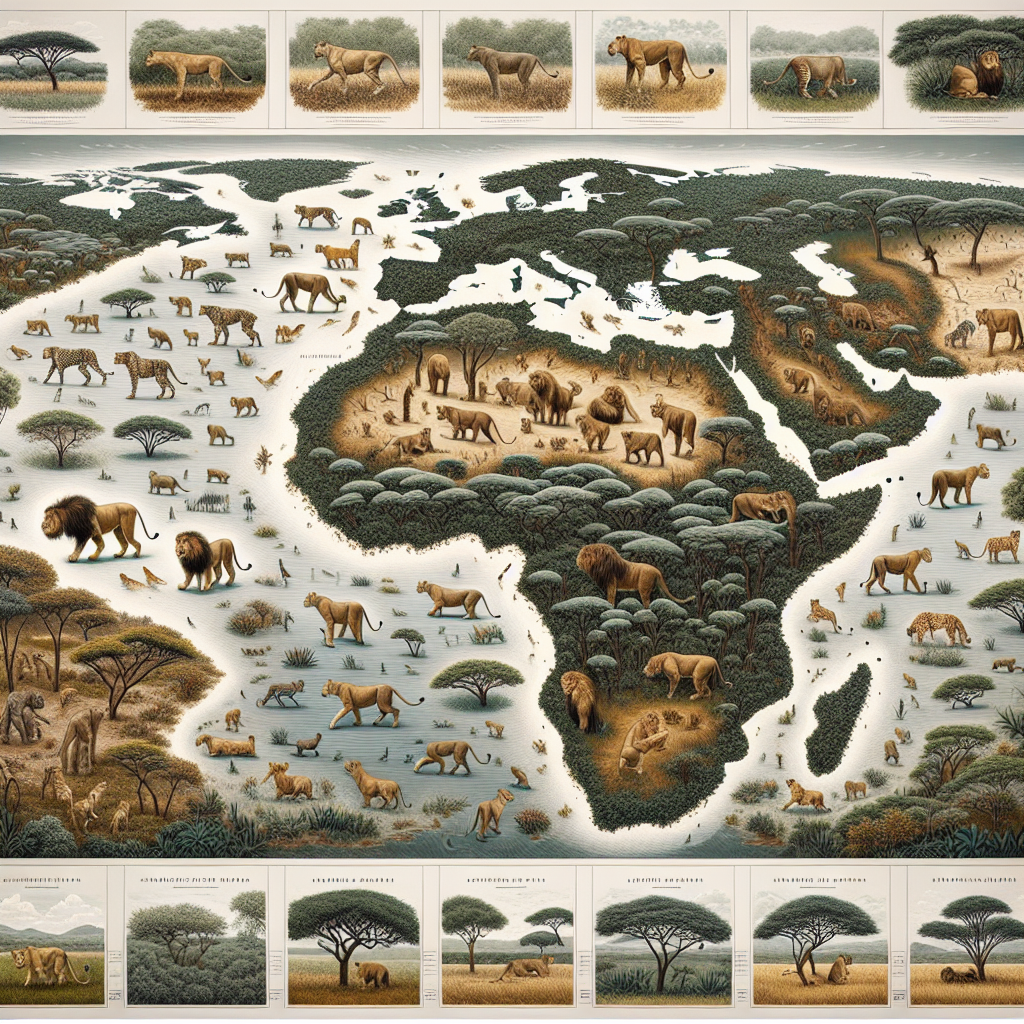
Conservation Efforts
Recognizing the importance of protecting lion populations, various conservation efforts are being undertaken across Africa. These efforts focus on mitigating the threats faced by lions and promoting their coexistence with local communities.
Protected Areas and National Parks
Establishing and maintaining protected areas and national parks is crucial for lion conservation. These areas provide secure habitats for lions, allowing them to thrive and maintain healthy populations. Efforts are made to ensure sustainable management of these protected areas, aiming to balance the needs of local communities and wildlife conservation.
Community-based Conservation Projects
Engaging local communities in conservation initiatives is vital for the long-term success of lion conservation. Community-based conservation projects involve local communities in decision-making processes and incentivize them to protect lion habitats. By providing alternative livelihood options, education, and awareness programs, these projects help foster a sense of ownership and commitment toward lion conservation.
Anti-poaching Initiatives
Combatting poaching is a crucial aspect of lion conservation. Anti-poaching initiatives aim to protect lions by strengthening law enforcement, increasing patrols, and implementing effective deterrents against illegal hunting. Collaboration with local communities, training of rangers, and deploying modern technology such as drones and camera traps are integral parts of these efforts.
Implications for Lion Conservation
The conservation of lions has far-reaching implications for both African ecosystems and global biodiversity. Protecting lion populations requires international cooperation, as the threats they face transcend national boundaries.
Need for International Cooperation
Lion conservation necessitates collaboration between African governments, international organizations, and local communities. Sharing best practices, scientific research, and resources is critical for the effective management of lion populations across their entire range. The formation of transboundary conservation areas and agreements to combat illegal wildlife trade are examples of international cooperation that can benefit lion conservation efforts.
Importance of Ecotourism
Ecotourism plays a vital role in generating income for local communities and supporting lion conservation efforts. Responsible tourism practices, such as low-impact safari experiences and community-run lodges, contribute to the sustainable conservation of lion habitats. By promoting the economic value of lions and their habitats, ecotourism provides an incentive for local communities to protect and preserve these iconic animals.
Education and Awareness Programs
Raising awareness about the importance of lion conservation is crucial for changing attitudes and behaviors. Education programs targeting local communities, children, and tourists help foster a sense of appreciation and stewardship toward lions. By understanding the ecological significance of lions and the need to conserve their habitats, individuals can contribute to the long-term survival of these magnificent creatures.
In conclusion, the range of lions in Africa encompasses diverse ecosystems and subspecies spread across the continent. However, these iconic creatures face numerous threats, including habitat loss, human-wildlife conflict, and poaching. The conservation efforts being undertaken, from protected areas and community-based projects to anti-poaching initiatives, play a vital role in preserving lion populations. International cooperation, ecotourism, and education programs are key to ensuring the long-term survival of lions and maintaining the delicate balance of Africa’s ecosystems. By working together and recognizing the importance of these magnificent creatures, we can secure a future where lions continue to roam the African savannahs, captivating and inspiring generations to come.
